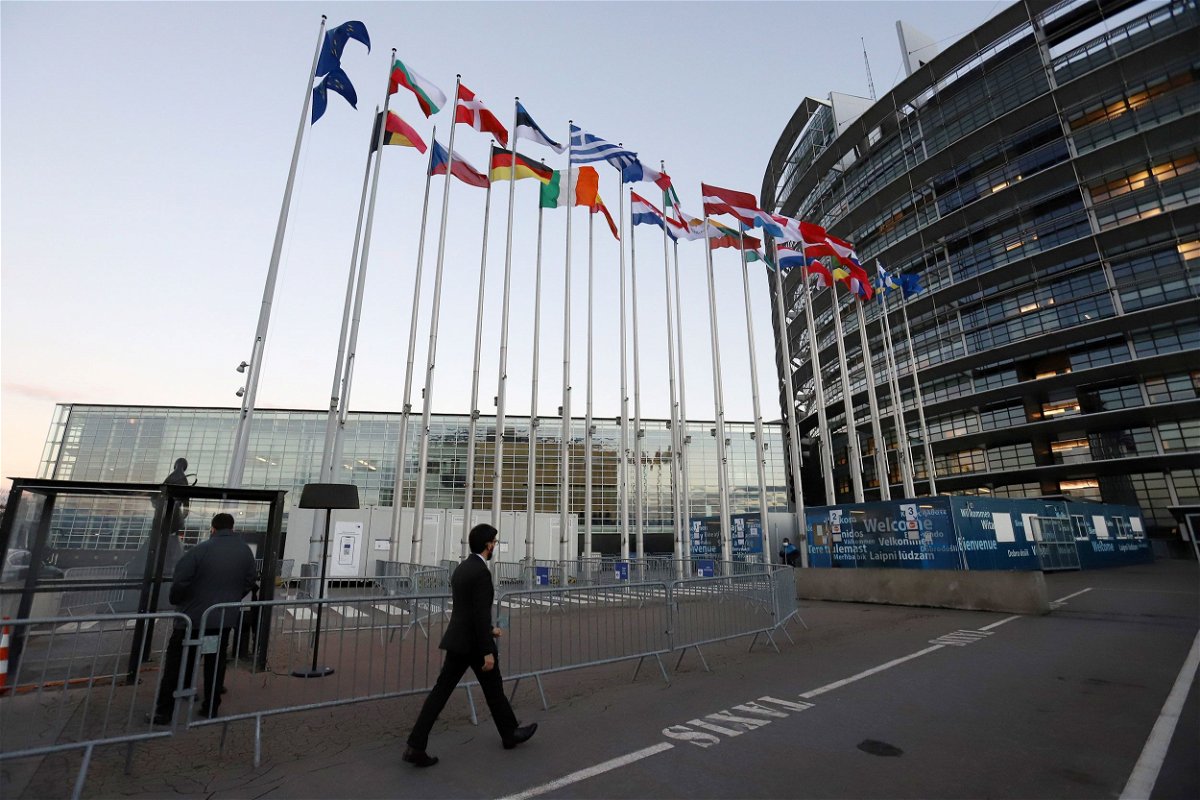‘Serious concerns’: Top companies raise alarm over Europe’s proposed AI law

The European Parliament building in Strasbourg
By Michelle Toh, CNN
Dortmund, Germany (CNN) — Dozens of Europe’s top business leaders have pushed back on the European Union’s proposed legislation on artificial intelligence, warning that it could hurt the bloc’s competitiveness and spur an exodus of investment.
In an open letter sent to EU lawmakers Friday, C-suite executives from companies including Siemens (SIEGY), Carrefour (CRERF), Renault (RNLSY) and Airbus (EADSF) raised “serious concerns” about the EU AI Act, the world’s first comprehensive AI rules.
Other prominent signatories include big names in tech, such as Yann LeCun, chief AI scientist of Meta (FB), and Hermann Hauser, founder of British chipmaker ARM.
“In our assessment, the draft legislation would jeopardize Europe’s competitiveness and technological sovereignty without effectively tackling the challenges we are and will be facing,” the group of more than 160 executives said in the letter.
They argue that the draft rules go too far, especially in regulating generative AI and foundation models, the technology behind popular platforms such as ChatGPT.
Since the craze over generative AI began this year, technologists have warned of the potential dark side of systems that allow people to use machines to write college essays, take academic tests and build websites. Last month, hundreds of top experts warned about the risk of human extinction from AI, saying mitigating that possibility “should be a global priority alongside other societal-scale risks such as pandemics and nuclear war.”
High compliance costs
The EU proposal applies a broad brush to such software “regardless of [its] use cases,” and could push innovative companies and investors out of Europe because they would face high compliance costs and “disproportionate liability risks,” according to the executives.
“Such regulation could lead to highly innovative companies moving their activities abroad” and investors withdrawing their capital from European AI, the group wrote.
“The result would be a critical productivity gap between the two sides of the Atlantic.”
The executives are calling for policymakers to revise the terms of the bill, which was agreed upon by European Parliament lawmakers earlier this month and is now being negotiated with EU member states.
“In a context where we know very little about the real risks, the business model, or the applications of generative AI, European law should confine itself to stating broad principles in a risk-based approach,” the group wrote.
The business leaders called for a regulatory board of experts to oversee these principles and ensure they can be continuously adapted to changes in the fast-moving technology.
The group also urged lawmakers to work with their US counterparts, noting that regulatory proposals had also been made in the United States. EU lawmakers should try to “create a legally binding level playing field,” the executives wrote.
If such action isn’t taken and Europe is constrained by regulatory demands, it could hurt the region’s international standing, the group suggested.
“Like the invention of the Internet or the breakthrough of silicon chips, generative AI is the kind of technology that will be decisive for the performance capacity and therefore the significance of different regions,” it said.
Race to regulate
Tech experts have increasingly called for greater regulation of AI as it becomes more widely used. In recent months, the United States and China have also laid out plans to regulate the technology. Sam Altman, CEO of ChatGPT maker OpenAI, has used high-profile trips around the world in recent weeks to call for co-ordinated international regulation of AI.
The EU rules are the world’s “first ever attempt to enact” legally binding rules that apply to different areas of AI, according to the European Parliament.
Negotiators of the AI Act hope to reach an agreement before the end of the year, and once the final rules are adopted by the European Parliament and EU member states, the act will become law.
As they stand now, the rules would ban AI systems deemed to be harmful, including real-time facial recognition systems in public spaces, predictive policing tools and social scoring systems, such as those in China.
The Act also outlines transparency requirements for AI systems. For instance, systems such as ChatGPT would have to disclose that their content was AI-generated and provide safeguards against the generation of illegal content.
Engaging in prohibited AI practices could lead to hefty fines: up to €40 million ($43 million) or an amount equal to up to 7% of a company’s worldwide annual turnover, whichever is higher.
But penalties would be “proportionate” and consider the market position of small-scale providers, suggesting there could be some leniency for startups.
Not everyone has pushed back on the legislation so far. Earlier this month, Digital Europe, a trade association that counts SAP (SAP) and Ericsson (ERIC) among its members, called the rules “a text we can work with.”
“However, there remain some areas which can be improved to ensure Europe becomes a competitive hub for AI innovation,” the group said in a statement.
Dragos Tudorache, a Romanian member of parliament who led the bill’s drafting, said he was convinced that those who signed the new letter “have not read the text but have rather reacted on the stimulus of a few.”
“The only concrete suggestions made are in fact what the [draft] text now contains: an industry-led process for defining standards, governance with industry at the table, and a light regulatory regime that asks for transparency. Nothing else,” he said in a statement.
“It is a pity that the aggressive lobby of a few is capturing other serious companies in the net, which unfortunately undermines the undeniable lead that Europe has taken.”
Brando Benifei, an Italian member of parliament who also led the drafting of the legislation, told CNN “we will listen to all concerns and stakeholders when dealing with AI regulation, but we have a firm commitment to deliver clear and enforceable rules.”
“Our work could positively affect the global conversation and direction when dealing with artificial intelligence and its impact on fundamental rights, without hindering the necessary pursuit of innovation,” he said.
The-CNN-Wire
™ & © 2023 Cable News Network, Inc., a Warner Bros. Discovery Company. All rights reserved.



